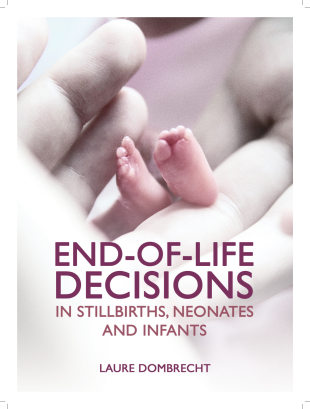Author: Laure Dombrecht
Date: 11-09-2020
Promoters: Prof. dr. Luc Deliens (Ghent University), Prof. dr. Joachim Cohen (Vrije Universiteit Brussel), Co-promoter: Dr. Kim Beernaert (Ghent University), Prof. dr. Kenneth Chambaere (Vrije Universiteit Brussel)
SUMMARY OF THE DISSERTATION
Recent diagnostic-therapeutic developments in fetal and neonatal medicine have profoundly changed the medical and ethical context of prenatal and neonatal healthcare. Through these medical advances, survival odds for extremely ill children are higher, but still a substantial part dies before they reach the age of one year old. Many of these deaths are preceded by a possibly life-shortening end-of-life decision. These include non-treatment decisions such as withholding or withdrawing life-sustaining treatment, intensification of alleviation of pain and/or other symptoms with a potential life-shortening effect and intentionally ending life with lethal drugs.
Available research on prenatal and neonatal end-of-life decisions, both within the Belgian context and abroad, was either incomplete or outdated. Within this dissertation, we examined end-of-life decision-making in prenatal and neonatal care on a population level, across centres and clinicians by means of a mortality follow-back survey in Flanders. Additionally, we explored attitudes of Flemish neonatal healthcare providers towards end-of-life decisions by means of a postal survey, and examined barriers and facilitators in end-of-life decision-making experienced by Flemish neonatologists and nurses by means of an interview study.
We revealed that end-of-life decision-making is an important part of daily clinical practice when caring for neonates and infants with severe conditions. Despite their commonality, deciding on an end-of-life decision in cases of severe suffering of the infant brings forth a significant number of barriers and stress for involved healthcare providers, which are not always adequately addressed by the neonatal ward.
The findings in this dissertation were used to formulate a number of readily implementable recommendations which will hopefully aid future infants, parents and healthcare providers so that a difficult end-of-life decision-making process can be made more bearable.

